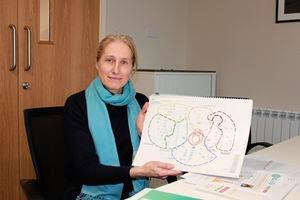‘Everyone has a role to play in tackling obesity problem’
GETTING everyone in Guernsey to understand the many factors that lead to unhealthy weight gain will be crucial in tackling the rising problem of obesity, according to those tasked with addressing the issue.

Globally, obesity rates have trebled in the last 50 years, with numbers among children and adolescents rising by a factor of five.
In England, the prevalence of obesity in children entering school for the first time has risen by almost 50% since the Covid pandemic began, having been stable for the previous decade.
The effects of the pandemic on obesity rates locally are being studied and results are yet to be published, but adult rates climbed from 18% to 23% between 2013 and 2018, while 15% of children in Year 5 (aged 9-10) were obese when the latest figures were published in 2018.
With today marking World Obesity Day – organised by the World Obesity Federation in conjunction with the World Health Organisation and The Lancet – Guernsey’s Health Improvement Commission is placing an emphasis on collective responsibility when it comes to tackling the problem.
‘Lots of people have a role to play,’ said healthier weight lead Lucy Whitman.
‘The work spreads across society. It’s everybody’s responsibility to create an environment where it’s possible to eat well, be active and have a healthy weight.’
The emphasis on a society-wide effort stems from recent studies which have shown how complex and convoluted the contributing factors are.
‘Genes are one factor,’ Mrs Whitman said.
‘You and I can look at a plate of biscuits and have a completely different, impulsive reaction as a result of our having one of a number of certain genes that have now been identified through the research.’
Other factors include income, cultural norms, access to locations suitable for exercise, advertising and mental health.
‘We know much more about it now than when we thought it was just down to laziness,’ Mrs Whitman said.
The belief that obesity stems from a lack of will power was itself a contributory factor, she said, as it strengthened the stigma around eating, which can exacerbate unhealthy relationships with food.
‘Eating well and being active are important messages for all of us, whatever our weight,’ Mrs Whitman said.
Solutions will be dependent on recognising that those who experience ill health due to raised weight are subjected to many influences outside of their control, meaning that a whole-society approach is needed.
‘Take drivers,’ she said. ‘I’m a driver as well as a cyclist and a pedestrian. If I drive carefully, I may influence the decision of a parent as to whether to allow their child to walk or ride to school.’
The States’ Healthy Weight Strategy was set up in 2016 and runs until 2023. Mrs Whitman said a good deal of work had been done in building understanding, especially in schools, but considerably more progress would need to be made to overcome the challenges thrown up by the pandemic and bring obesity rates down.
‘This is a problem which has grown over 40 years and it would be unrealistic to imagine that it can be solved in five or six,’ she said.
‘It may take another 40 years to effect the cultural changes that will be necessary.’





